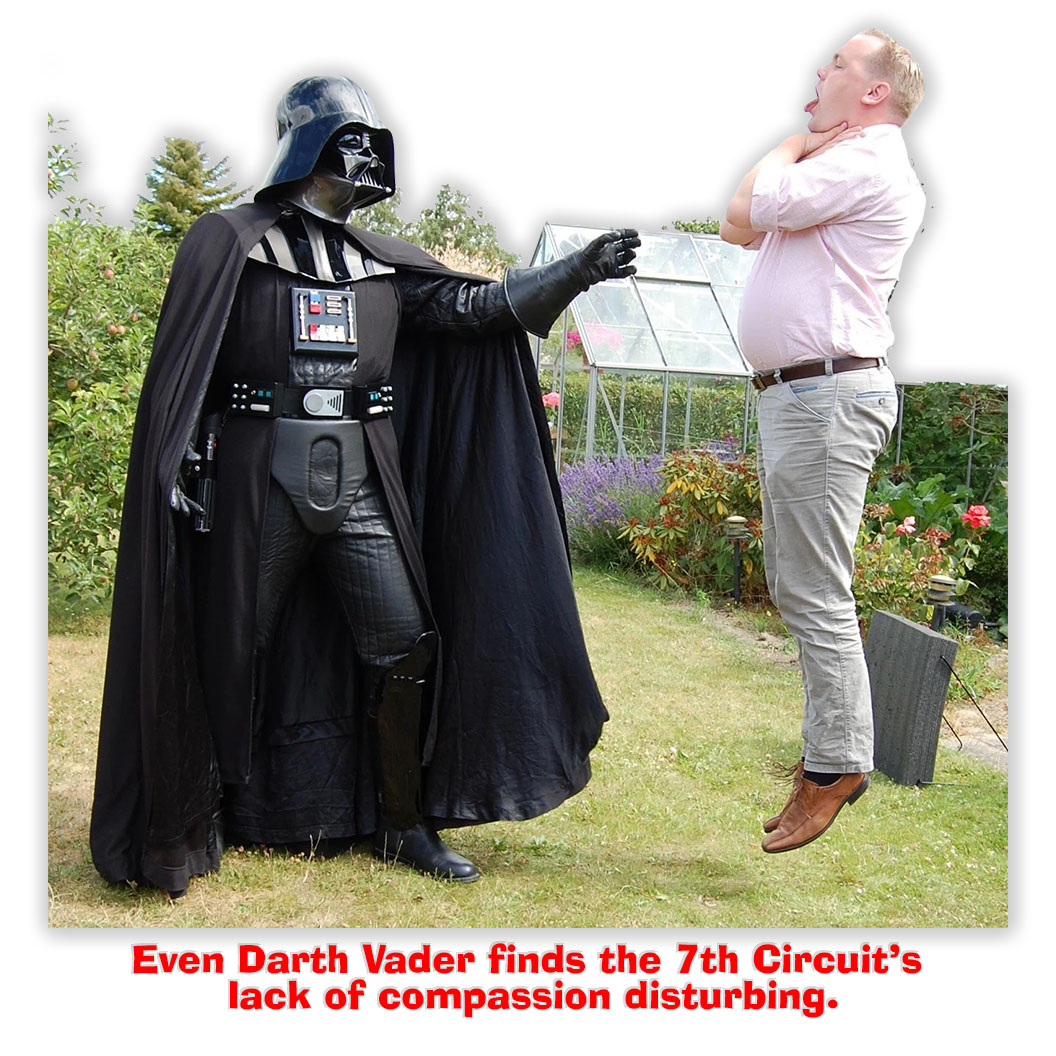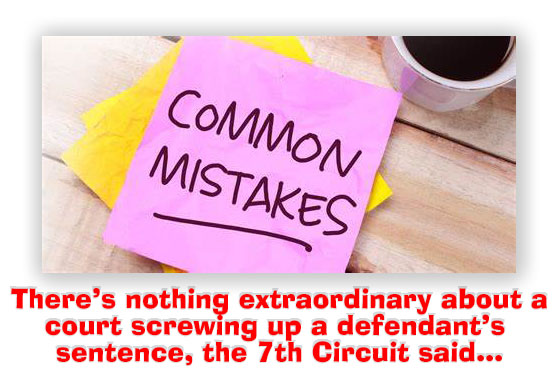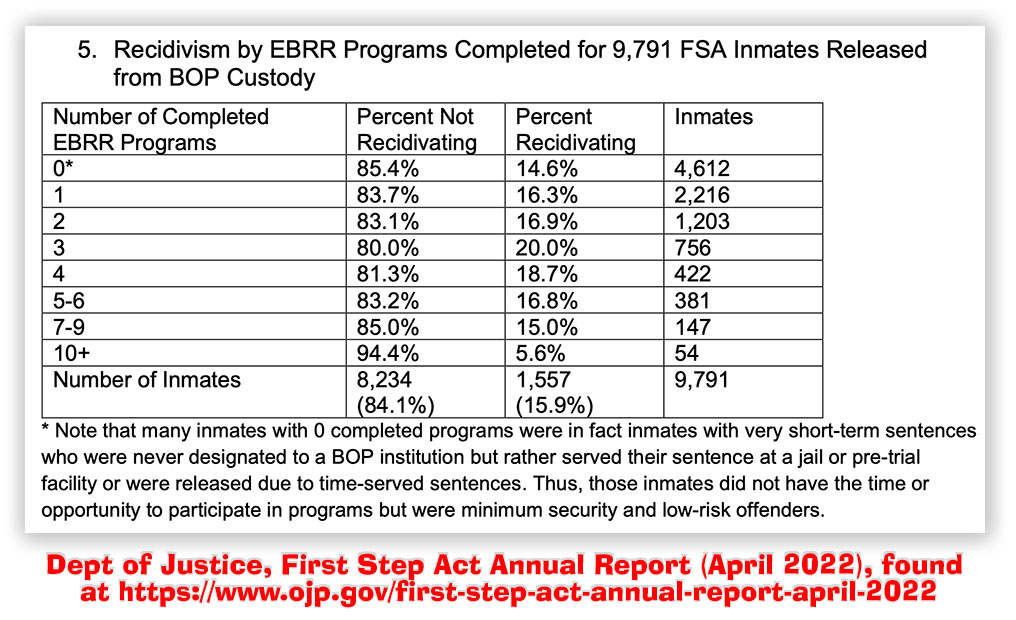We post news and comment on federal criminal justice issues, focused primarily on trial and post-conviction matters, legislative initiatives, and sentencing issues.

7TH CIRCUIT ISSUES DOUBLE-BARRELED COMPASSIONATE RELEASE DENIALS
Nuthin Times Nuthin May Be More Than Nuthin’: Stanley Vaughn, who is doing consecutive 240- and 262-month sentences, moved for compassionate release because of COVID-19 and his record of programming. He also argued that due to decisions issued since his conviction, he could not receive nearly as high a sentence if he was convicted today.
 Last week, the 7th Circuit affirmed a district court denial of his compassionate release motion. Holding that “COVID-19 has been a fact of life for more than three years,” the 7th observed that “for prisoners who have received a vaccine, the risk of serious complications should they develop a breakthrough infection is modest. Vaughn has not provided or pointed to any medical data suggesting that his combination of conditions puts him at serious risk should he develop a breakthrough infection.”
Last week, the 7th Circuit affirmed a district court denial of his compassionate release motion. Holding that “COVID-19 has been a fact of life for more than three years,” the 7th observed that “for prisoners who have received a vaccine, the risk of serious complications should they develop a breakthrough infection is modest. Vaughn has not provided or pointed to any medical data suggesting that his combination of conditions puts him at serious risk should he develop a breakthrough infection.”
Stan’s argument about completing classes left the appeals court equally unimpressed: “Taking classes while incarcerated is common rather than extraordinary. If data showed that completion of particular classes reliably put prisoners on the path to a law-abiding life, that might satisfy the statutory requirement, but Vaughn has not supplied any information along these lines.”
The Circuit may as well demand that Vaughn prove that the sun will rise in the east tomorrow. From Congressional findings underpinning the First Step Act to the most current Dept of Justice reports on the effectiveness of the Act, evidence shows that the more evidence-based recidivism reduction classes a prisoner completes and the lower his or her recidivism score, the less likely he or she is to return to prison.
After reducing Stan’s programming achievements to an asterisk, the Circuit ruled that his career offender classification and not a statutory minimum drove the 262-month sentence. Stan’s reliance on United States v. Ruth, was misplaced, the Circuit said., and does not affect the career-offender calculation. “At all events,” the 7th noted, “we have held that Ruth does not justify compassionate release as an indirect means to achieve retroactive application of that decision.”
An interesting aspect of the ruling is the Circuit’s endorsement that individual reasons may be aggregated to meet the “extraordinary and compelling” standard for compassionate release: “If we conceive of ‘extraordinary and compelling reasons’ as those differentiating one prisoner’s situation from 99% of other prisoners, it is easy to see how Circumstance X could be true of only 10% of prisoners, Circumstance Y of 10%, and Circumstance Z of 10% – each insufficient to meet the threshold, but if they are independent then collectively enough to place the applicant among only 0.1% of all federal prisoners… Our point… is that no matter how the threshold is defined, a combination of factors may move any given prisoner past it, even if one factor alone does not.”
Despite this holding, the Circuit concluded that however you stacked Stan’s reasons, they fell short.
Legal Error Is Neither Extraordinary Nor Compelling: Leonard Williams filed for compassionate release because a district court treated him as having a prior conviction for unlawful drug delivery, which increased his minimum sentence to 10 years. But United States v. Ruth held that his conviction for delivery of cocaine in Illinois does not satisfy the criteria of a “serious drug felony” under 21 USC § 841(b)(1)(B), meaning his sentence was longer than the law required.
Last week, the 7th Circuit said ‘so what?’
 “As we put it in Von Vader,” the 7th said, “the sort of ‘extraordinary and compelling’ circumstance that § 3582(c)(1) addresses is some new fact about an inmate’s health or family status, or an equivalent post-conviction development, not a purely legal contention for which statutes specify other avenues of relief—avenues with distinct requirements, such as the time limits in § 2255(f) or the need for a declaration by the Sentencing Commission that a revision to a Guideline applies retroactively… There’s nothing ‘extraordinary’ about a legal error by a district court (or a court of appeals), and the law provides methods other than compassionate release for dealing with claims of legal error.”
“As we put it in Von Vader,” the 7th said, “the sort of ‘extraordinary and compelling’ circumstance that § 3582(c)(1) addresses is some new fact about an inmate’s health or family status, or an equivalent post-conviction development, not a purely legal contention for which statutes specify other avenues of relief—avenues with distinct requirements, such as the time limits in § 2255(f) or the need for a declaration by the Sentencing Commission that a revision to a Guideline applies retroactively… There’s nothing ‘extraordinary’ about a legal error by a district court (or a court of appeals), and the law provides methods other than compassionate release for dealing with claims of legal error.”
United States v. Vaughn, Case No. 22-2427, 2023 U.S.App. LEXIS 6171 (7th Cir., March 15, 2023)
United States v. Williams, Case No. 22-1981, 2023 U.S.App. LEXIS 5877 (7th Cir., March 13, 2023)
– Thomas L. Root


